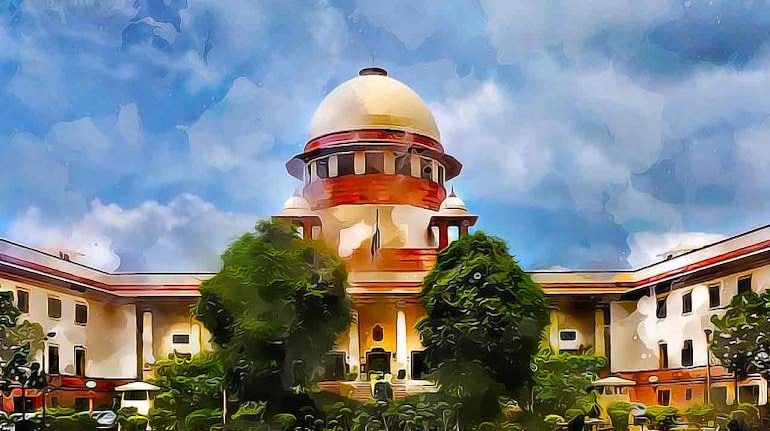



In medieval times, kings are said to have employed jesters, or more commonly, fools. While their purpose was to entertain the king’s court, they enjoyed a special privilege — to be able to speak harsh truths, often couched in humour, and therefore, without inviting the wrath of the sovereign.
Recently in India, comedian Kunal Kamra came under fire for some tweets critical of the Supreme Court. If interpreted charitably, the tweets imply that the court reserves its lofty proclamations of constitutional idealism for the well-heeled, while turning a blind eye to the pleas of common folk. Other tweets implied a nexus (again, diplomatically put) between the court and the ruling party at the Centre.
While it is easy to see how judges could feel affronted at these, the fact is over the last few years, the Supreme Court has hardly lived up to its mandate as the ‘sentinel on the qui vive’ or ‘watchman at the gate’ turning its face from many who knocked on its doors. Perhaps none is as striking as the months it takes to decide on ‘Habeus Corpus’ petitions — often considered the most important of writs, traditionally requiring immediate redress — contrasted with the alacrity with which Republic TV head Arnab Goswami gets an audience, and invariably, relief, in the court.
Even in cases involving ‘free speech’, analysis by the Indian Express suggests that out of the prominent cases involving the exercise of freedom of speech by citizens this year, the apex court granted relief only in the cases where the central government actually sided with the petitioner before the court. So the ‘path of destruction’ that the Supreme Court sought to avoid in the case of Goswami is actually, for many, a highway that the country is speeding along.
Before one leaps into analysis, a caveat is necessary. The Supreme Court has not taken action (yet) on Kamra’s tweets. If jurisprudence serves as a guide, there is no cause for concern. In a case of alleged contempt by the then Indian Express editor S Mulgaonkar, Justice V Krishna Iyer (finding him not guilty) laid down six salutary principles to be considered while punishing for contempt. One of them goes “not to be hypersensitive even where distortions and criticisms overstep the limits, but to deflate vulgar denunciation by dignified bearing”.
Another of Iyer’s principles bear higher scrutiny. Iyer entreats the court to “avoid confusion between the personal protection of a libelled judge and prevention of obstruction of public justice and the community’s confidence in that great process”. The former, he states, is not contempt.
It is of no debate that anything undermining the public’s confidence in the judiciary should be nipped. However, we must dispassionately question what are the actions that undermine this public confidence. Is it Prashant Bhushan’s tweets about the impropriety of the Chief Justice enjoying the hospitability of those connected with the ruling party, or the enjoyment of such hospitality by the Chief Justice? Is it Kamra’s tweets about the court’s perceived elitism, or is it the perception of elitism and its seeming indifference to issues fundamental to democracy that the court has, perhaps inadvertently, cultivated?
Admittedly, Article 19 specifically disavows protection for speech that constitutes contempt of court is not protected under. The definition of criminal contempt under the Contempt of Courts Act, 1971 includes acts which scandalises or tends to lower the authority of a court. Therefore, imputing malice, or for that matter, even apathy, to the judiciary is worthy of contempt.
But what is concerning is that the judiciary seems to be betraying a sense of insecurity about any form of criticism — in just the last year, judges have repeatedly remarked in open court about the criticism they are subjected to. Of course, they evoke sympathy, till you realise that all public figures are subject to harsh criticism — often unfairly. Many, like Prime Minister Narendra Modi, choose to ignore these and let the public decide for themselves. There’s no reason for the judiciary to be particularly touchy.
While upholding novelist Perumal Murugan’s book, Madhorubhagan, the Madras High Court said his writings “would be a literary contribution, even if there are others who might differ with the material and style of his expression. Let the writer be resurrected to what he is best at. Write”.
Similarly, the comedian and the cartoonist should be left to what they do best — show a mirror to our society through humour — even when the butt of their joke is the judge himself. The consequences of being blind to public perception is far worse.
Abraham C Mathews is an advocate based in Delhi. Twitter: @ebbruz. Views are personal.
Discover the latest Business News, Sensex, and Nifty updates. Obtain Personal Finance insights, tax queries, and expert opinions on Moneycontrol or download the Moneycontrol App to stay updated!
Find the best of Al News in one place, specially curated for you every weekend.
Stay on top of the latest tech trends and biggest startup news.